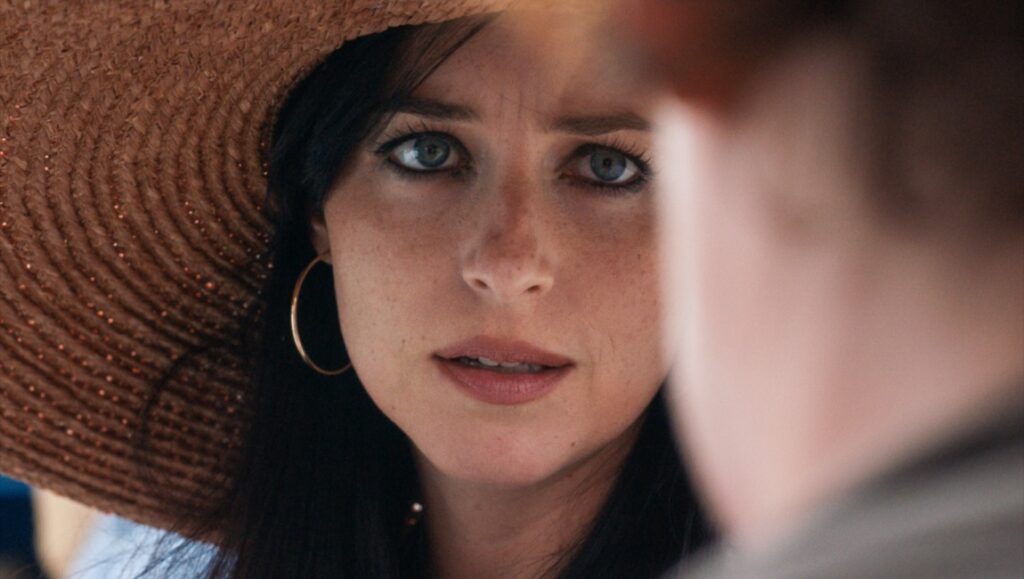The Lost Daughter doesn’t quite manage its own distinct cinematic voice, but still proves Gyllenhaal to be a director worth keeping up with going forward.
While her introduction to the film industry came by way of her father, ’90s prestige director Stephen Gyllenhaal, Maggie Gyllenhaal has almost exclusively stuck to the realm of acting over the course of her three decades in the business (brother Jake has followed a similar trajectory, but with a more robust lineup of producer credits). In this stretch of time, the senior Gyllenhaal has seen his clout vanish (high-minded miserablism like Losing Isaiah and A Dangerous Woman very out of fashion) while his actor progeny have both flourished. But now, Maggie seems poised to pick up where her father fizzled out, establishing herself as a noteworthy filmmaker in her own right with the Elena Ferrante adaptation The Lost Daughter.
Pulling from a source text The New Yorker described as a “…brutally frank novel of maternal ambivalence,” The Lost Daughter casts Olivia Colman as Leda, an academic vacationing on the coast of Italy alone, subconsciously on the run from guilt-ridden memories threatening to upend her mental health. Drawn into the lives of a gauche American family visiting the same beach, Leda begins to fixate on Nina (Dakota Johnson), a young mother who radiates a palpable dissatisfaction recognized by the older woman, one that compels her to entangle herself with the younger one’s affairs. As Leda’s behavior becomes more intense and erratic, flashbacks (featuring Jessie Buckley as the younger version of the character) reveal the origins of the current-day mania, building toward a very dramatic climax embodying this clash between unresolved past and uncertain present.
Working from a screenplay written by Gyllenhaal, this adaptation of The Lost Daughter is indebted to the medium in which the story originated, leaning on novelistic symbolism and narrative structure. Perhaps too strict a translation of page to screen, The Lost Daughter nonetheless intrigues with its provocative depiction of a mother in conflict with motherhood, but there’s a flatness to the writing that has many of the film’s biggest moments land in perfunctory fashion. The events of the book are dutifully enacted on screen, but Gyllenhaal unfortunately doesn’t attempt to shade them in any further, clearly relating to, and passionate about, the material, but not making much room for her own voice alongside Ferrante’s. One wishes that such a barbed, pseudo-taboo narrative was more impactful and bracing, but The Lost Daughter isn’t unconfident in its depiction, nor vague in its thematic expression, which places Gyllenhaal out ahead of most of her Hollywood contemporaries at least.
And where the storytelling falters at being entirely cinematic, the cinematography picks up some of the slack, with the iconic Hélène Louvart taking on DP responsibilities, providing the film with a striking aesthetic identity not dissimilar to that of the recent Eliza Hittman projects she shot (lots of controlled, handheld close-ups clashing with very precise framing). When considered all together (along with Colman and Johnson’s performances, very much in their respective lanes, but that’s fine), The Lost Daughter is a striking debut feature, if not exactly confirmation of a new essential filmmaking voice. Still, that’s enough to make Gyllenhaal a director of interest going forward, some of what’s plaguing The Lost Daughter falling under the umbrella of “first time director critiques” after all. And at the very least, she’s already asserted herself as the most exciting filmmaker in the family with only her first feature.
You can currently catch Maggie Gyllenhaal’s The Lost Daughter in theaters or streaming on Netflix beginning on December 31.


Comments are closed.